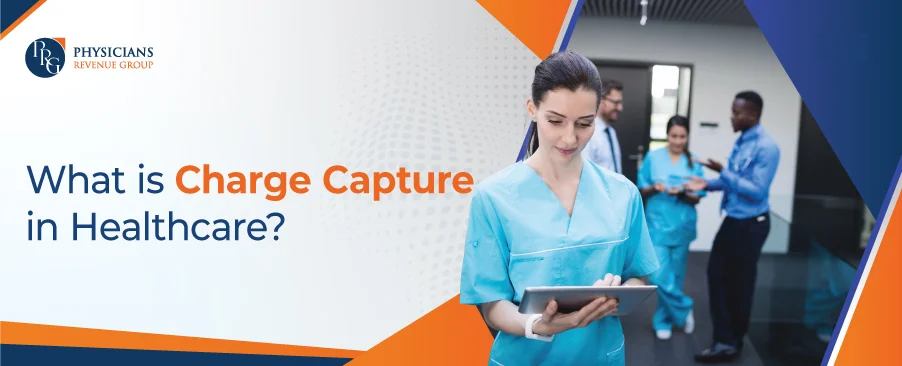
Email: info@prgmd.com | Call: +1 (630) 242-6474
Business hours: 9:00 to 5:00 | Monday to Friday
Email: info@prgmd.com | Call: +1 (630) 242-6474
Business hours: 9:00 to 5:00 | Monday to Friday

Table of Contents
ToggleAccurate, timely, and effective billing is the lifeblood of every healthcare practice. Healthcare providers deserve to be fully compensated for the services they provide. The process of getting paid in the healthcare industry is charge capture. In addition, charge capture in healthcare ensures accurate billing by capturing services rendered, while a medical billing audit validates the billing process for compliance and efficiency.
Additional Charge Capture Challenges:
Addressing these charge capture challenges is vital to enhancing the efficiency of healthcare billing. Understanding the significance of:
A noteworthy trend is integrating charge capture systems with Electronic Health Records. This integration facilitates seamless communication between clinical documentation and billing processes. The result is a reduction in errors and an improvement in the accuracy of charge capture.
The emerging trends in charge capture signify a shift towards more efficient and error-resistant healthcare billing practices.
Charge capture in healthcare is now seamlessly integrated into broader healthcare processes, including clinical decision support and quality improvement initiatives. This integration ensures billing aligns with overall healthcare goals and that services are properly documented and billed to uphold quality standards.
These practices aim to enhance accuracy, efficiency, and alignment with healthcare objectives.
Healthcare organizations must dedicate more time to enhancing the charge capture process. Providers need to recognize its significance in generating revenue. Office billing staff should receive training on the importance of accuracy and timeliness. Key steps for improvement in the charge capture process in healthcare include:
The most common reason for denied claims is incorrect information. Be it by accident or intentionally, coding and billing errors are the most common reasons for claims denials due to incomplete, missing, or incorrect information.
It is a strategic process that aims to resolve and unmask problems that lead to claim denials.
Share:
Categories
Recently Added

What is an ABN in medical billing?

What does a Clearinghouse do During Claims Submission?

What is EOR in Medical Billing?
We Would Love to Assist You!
We treat your data confidentially and don’t share any information with a third party.